Australia’s native rats and mice are as worthy of love and attention as the continent’s better-known marsupials.

Perched on a low branch was a creature the size of a small rabbit with a super-long tail that ended with a flourish in a shaggy white brush. ‘Spectacular’ is a word regularly bestowed on the black-footed tree-rat, but words and photos hadn’t readied me for the reality.
Australia is so famous for marsupials that its rodents go under-appreciated, even though they outnumber marsupials across much of the continent, come in many shapes and sizes and occupy numerous ecological roles. Some are beautiful, with soft chestnut, orange or golden fur. I admire our marsupials, but Australia has rodents that excite me just as much.
Our smallest marsupials used to be called ‘marsupial mice’, encouraging the idea that Australia is without true native rodents. In truth, however, rodents account for almost a quarter of our mammal species. Newer on the scene than our marsupials and egg-laying monotremes, they are here because one rodent species arrived from Asia a little more than 5 million years ago, probably travelling on floating rafts of vegetation, and another came later. These two species eventually gave rise to the 65 or so species we have today.
Diese Geschichte stammt aus der March -April 2018-Ausgabe von Australian Geographic Magazine.
Starten Sie Ihre 7-tägige kostenlose Testversion von Magzter GOLD, um auf Tausende kuratierte Premium-Storys sowie über 8.000 Zeitschriften und Zeitungen zuzugreifen.
Bereits Abonnent ? Anmelden
Diese Geschichte stammt aus der March -April 2018-Ausgabe von Australian Geographic Magazine.
Starten Sie Ihre 7-tägige kostenlose Testversion von Magzter GOLD, um auf Tausende kuratierte Premium-Storys sowie über 8.000 Zeitschriften und Zeitungen zuzugreifen.
Bereits Abonnent? Anmelden

SULAWESI SENSATIONS
There are worlds within worlds and marvels untold waiting to be experienced on Indonesia's remote islands.
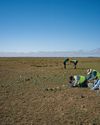
SEARCHING FOR AUSSIE DINOSAURS
Our understanding of where to find ancient life in Australia has been turned on its head by a new appreciation of the country's geology. Now the world is looking to our vast outback as the latest hotspot to locate fossils.
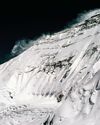
THE HARDEST NIGHT
The first Australian ascent of Mt Everest in 1984 is one of the great feats of mountaineering. Climbed by a small team semi-alpine style, with no bottled oxygen, via the Great (Norton) Couloir, it remains unrepeated 40 years later.
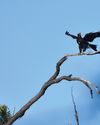
WEDGE-TAILED WONDER
The chance discovery of an eagle nest leads to an extended vigil observing normally hidden behaviours of one of nature's supreme winged marvels.
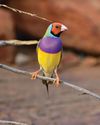
BURDENED BY BEAUTY
Northern Australia's Gouldian finch survives in huge numbers in cages around the world, but its wild population continues to struggle.
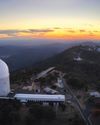
A TELESCOPE FOR A GOLDEN AGE
After a stellar 50 years as one of the country's major scientific assets, the AAT continues to play a major role in keeping Australian astronomy on the world stage.
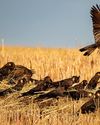
COCKY WHISPERING AT COOMALLO CREEK
This patch of remnant bush on the edge of the West Australian wheatbelt is a place loved by one of Australia's rarest bird species and the man who has studied the site for more than 50 years.

A PIONEERING PAIR
Louisa Atkinson and her mother, Charlotte, were among Australia's earliest authors, and pioneers in women's rights.

THE LONGEST WALK
Lucy Barnard is walking from Argentina to Alaska -the length of the Americas - on an extraordinary journey of endurance and adventure.
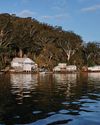
SECLUDED, BUT NOT ALONE
In an era of heightened social isolation, where many of us lead lonely lives, Dangar Island offers the chance to be part of a supportive, connected community.